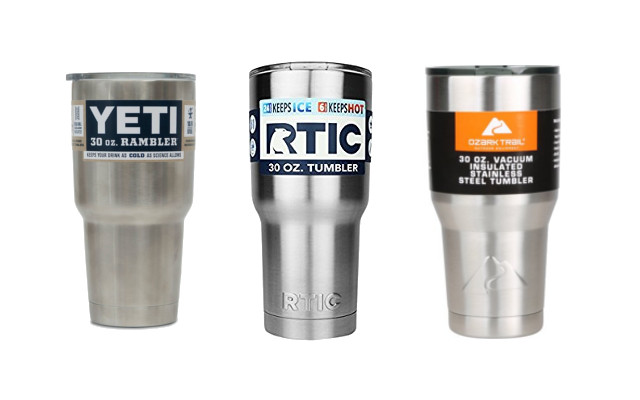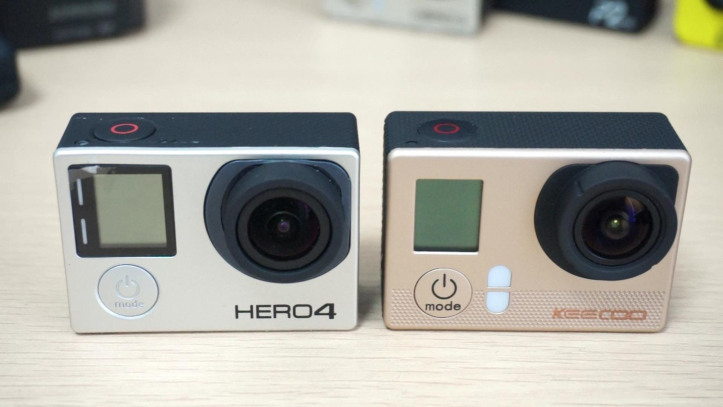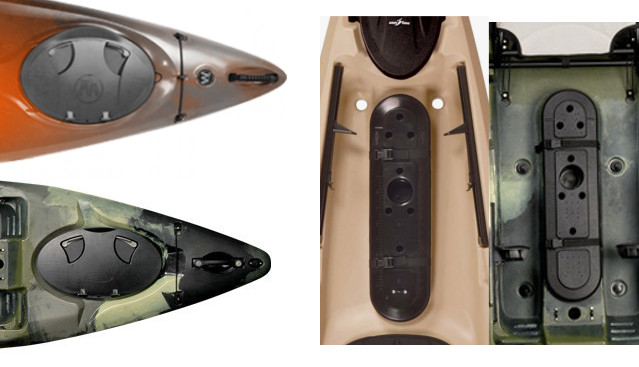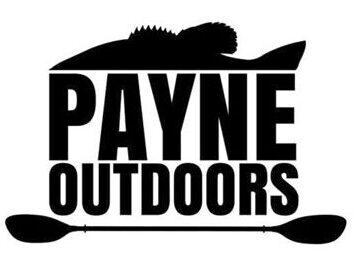
Copy catting products and making knockoffs for profit. That’s what I’m trying to wrap my head around today. Is it theft, sly business, is it accepted as a norm, is it ok if you can’t afford the real product? I feel like a civil discourse is needed to help me really formulate what drives it.
Table of Contents
ToggleAction Camera Knockoffs
We have all seen product knockoffs. For years the GoPro has had very deliberate knockoffs. They look almost identical. The price however, is much different. There are times when you can buy a half dozen knockoffs for the price of one GoPro. The function is similar enough that these are mass produced and sold via eBay or Amazon. You see more each year. Is that a good thing or a bad thing? GoPro spent a lot of time and money into Research and Development to produce their camera. Is it right that someone copies these efforts, reverse engineers some stuff and then takes away potential market share?

Here is why I think the question is important. If the pattern of knockoffs continues to undercut the people who did all the work to develop the cool new product, are we muzzling the desire for companies to invest in new products?
Coolers and Tumblers
We could talk coolers too. YETI vs RTIC vs Ozark Trail etc, etc. Everyone is in the cooler game now because it can be highly profitable. Or it was. Now that WalMart and their Ozark Trail brand is selling very similar products (knockoffs) of the YETI line, the desire for a product that does what YETI does without the price tag, has been met. People who can’t justify $30 for a cup, spend $8 and are happy. That’s good for them but is it short sighted?
 Does all the knockoff profiteering decrease the desire for innovation?
Does all the knockoff profiteering decrease the desire for innovation?
Let me answer that. I don’t think it does, but I do think it makes it even more expensive.
Built into your end consumer costs,(instead of just parts, labor, research and development), is now legal fees to sue purveyors of knockoffs. It’s a thing believe it or not. The cost of patents, patent lawyers, filings, and all the other goodness that goes into idea protection is ramped up even more to pay for litigating attorneys to stop companies from violating patents.
They might stop, but instead of innovating and laying out the cash to protect their own ideas, the knockoffs just pocket the money they made in the time it took to make all the filings for a cease and desist and then an appeal, and start knocking off something else. Sell it until you’re sued and then find something else to copy.
Kayaks
Want to see where else this has invaded? Look at some kayaks. Especially fairly new brands. I find myself thinking “Wow, that hatch looks familiar. Wow that pedal drive is the spitting image of… Wow, isn’t this the same console?”
 It is easy, cheap, and profitable to copy, steal, and knockoff. The question is, do we as consumers even care anymore? We cringe at the idea of buying stolen goods but run toward the chance to buy stolen ideas. That’s messed up. Ideas, education, study, practice, rewards for hard work, those are all thrown out the window for a quick buck way too quickly. And as consumers, should we be better than to buy these stolen ideas or should we just mind our own business and take a stance like “Let the businesses sort it out?”
It is easy, cheap, and profitable to copy, steal, and knockoff. The question is, do we as consumers even care anymore? We cringe at the idea of buying stolen goods but run toward the chance to buy stolen ideas. That’s messed up. Ideas, education, study, practice, rewards for hard work, those are all thrown out the window for a quick buck way too quickly. And as consumers, should we be better than to buy these stolen ideas or should we just mind our own business and take a stance like “Let the businesses sort it out?”
I’m very interested in your thoughts. Let’s keep it civil please.
3 thoughts on “Knockoffs : Okay or Harmful for American Companies?”
Comments are closed.

I am in the auto repair industry and this has been going on for years in it. Around the early eighties the box store auto parts stores began to take off,before it was mostly mom and pop type stores. The big stores could buy in bulk and undercut the others eventually putting most all of them out of business. Also they sold cheaper foreign parts that were not the same quality as the domestic made parts forcing companies to make lower quality parts to be able to compete pricewise with them. Today most all parts are cheap junk that doesn’t compare to the OE parts but thats about all you can buy due to the good companies going out of business or making cheap junk as well. If the outdoor industry follows this same path it will soon be the end of smaller high quality companies. Another thing,in order to produce ,ship and distribute this cheap merchandise you have to figure the costs are cut in labor and supplies,near slave like labor and cheap materials being used in most foreign countries where the workers and the enviroment aren’t protected by laws as stringent as in the U.S.,bad all the way around for everyone
Interesting thoughts but there are a few things to consider:
Of the 3 category examples you listed above, only 1 of them, the action camera, falls into the knock-off category with a risk of patent infringement.
In cases like the Yeti Rambler, or Yeti vs. RTIC, the ensuing lawsuits were primarily over trade dress, not the invention itself or patent infringement. Trade dress meaning that the product or it’s packaging, branding or marketing look too similar to the plaintiff’s design.
Interestingly, all 3 stainless steel cup companies you pictured have their cups manufactured at the same place. Consumers don’t know that and often assume a quality difference because of the lower price when in reality, they’re identical — back to the trade dress issues when a premium brand can prove consumer’s are buying, not just their product, but the experience around their brand.
In the case of Yeti, they’re a premium brand that commands premium prices but not because they have a higher cost, or any of the concerns you mentioned above. They have a higher price because they’re an aspirational brand and they can.
Several years ago, Louis Vuitton encountered stagnant sales growth. Their solution — raise prices steeply! This positioned them as “the” premium brand allowing them to capitalize on both the additional profit and the increase in units sold for being the top-of-the-line brand. Yeti went to straight for the top and brilliantly carved out a premium slot in a sector no one thought possible.
In the kayak examples, all we’re seeing here is the evolution of competitive innovation. Often companies will source parts from the same source and unless that part is centrifugal to the sale of the product, trade dress issues don’t apply.
So to sum it up, of course piracy is wrong both digitally, physically and conceptually and you have valid points just ill-placed examples. Based on the wide net that this article casts — should we boycott products that are similar to older brand’s products and disregard the price points the companies have chosen to play in or the innovations they brought to the table that prevented patent-infringment? If so, then there’s goes Publix brand food products, Dick’s Field and Stream products, Bass Pro Shops products, Cabela’s products, every brand Wal-Mart or Target has purchased and whittles the American consumer market down to monopolized, high-end brands only.
One of my pursuits tends to be photo equipment. I have many $$$ invested in expensive professional level, name brand equipment. I like name brand stuff because it tends to be better and more dependable. However, a few years ago after continuous frustration with high-end name brand electronic triggering devices not working properly because the manufacturer had not kept up with (my opinion) advances in electronics because they had the lions share of the market and had an established reputation as the best, I decided to try some cheap Chinese knock-offs. I mean ultra cheap knock offs! Guess what? They actually work ever time, have better range, and are disposable priced. I am still using them years later and have since purchased more of their knock-offs as they are now my preferred brand for electronic triggers. What I have noticed was the original name brand manufacture that I dumped is now producing a better product. I have come to believe that in many cases “knock-offs” can drive innovation. There are lots of examples; 1911 style pistols, AR15 style rifles, mechanics hand tools, just to name a few. So for me, I only buy OEM if it is better.